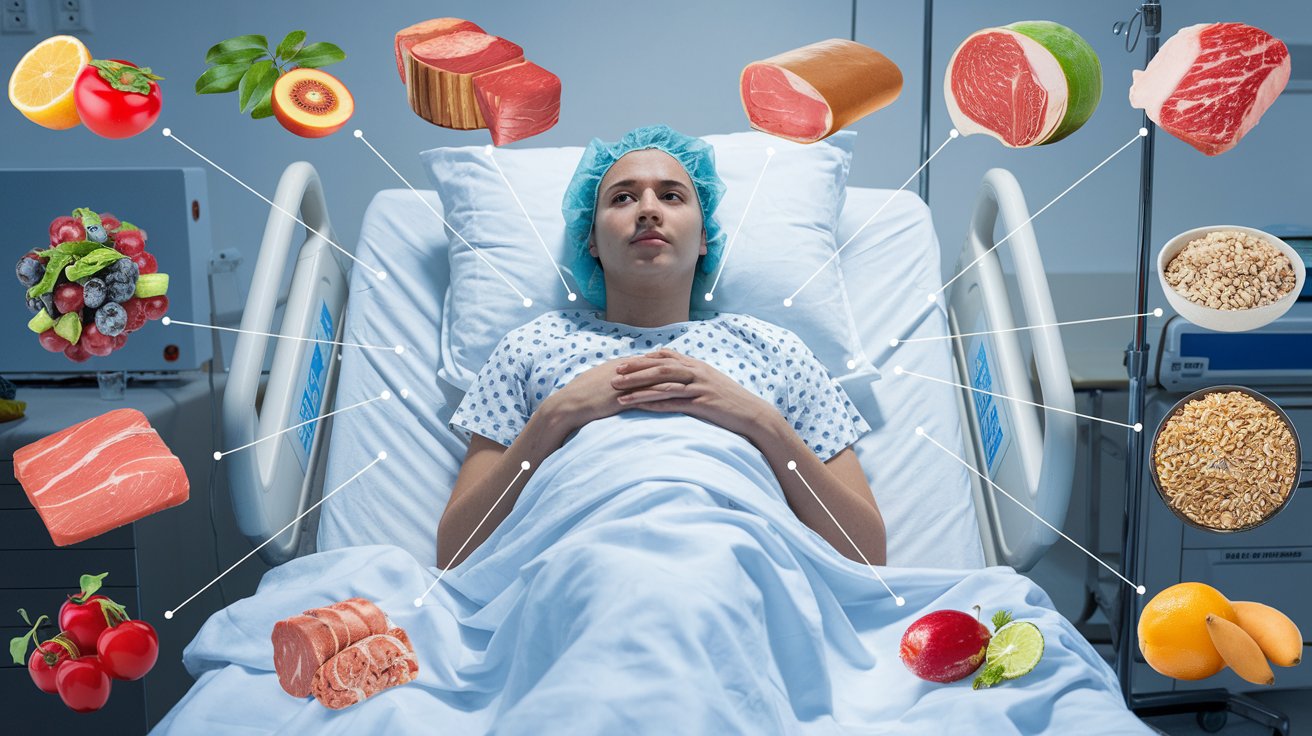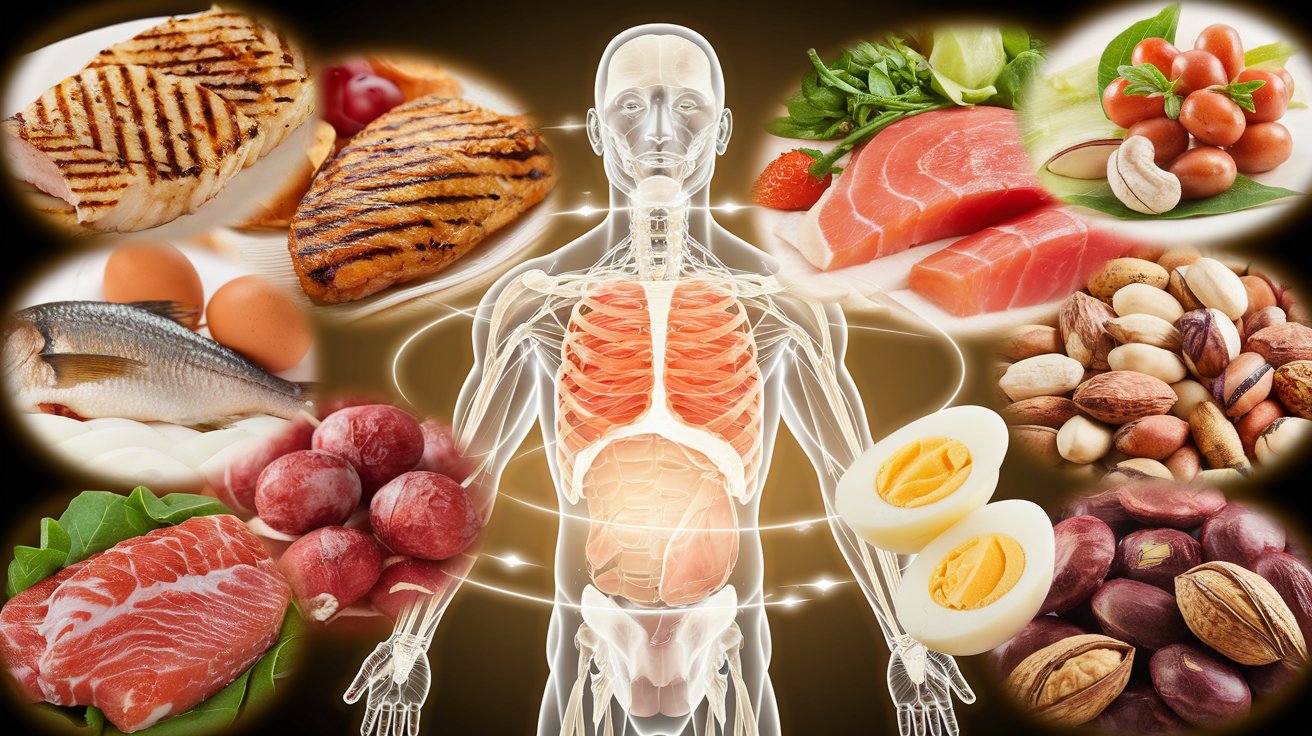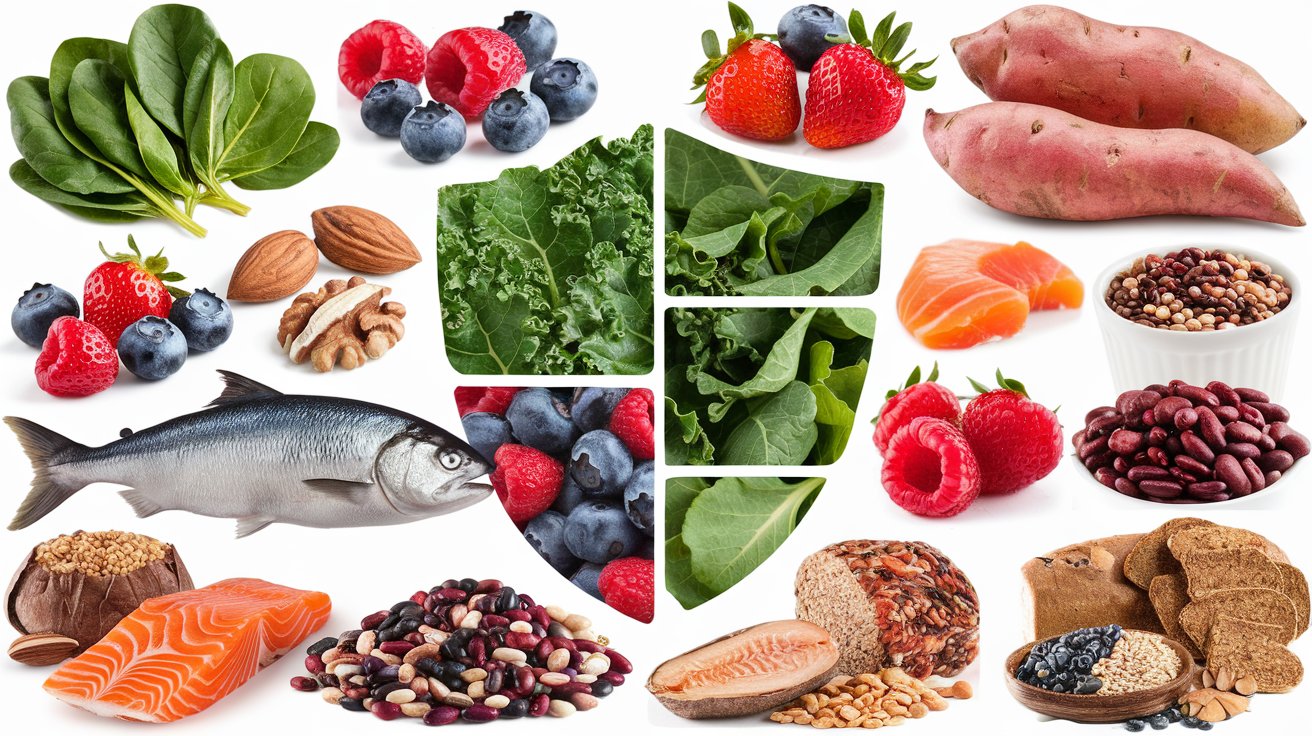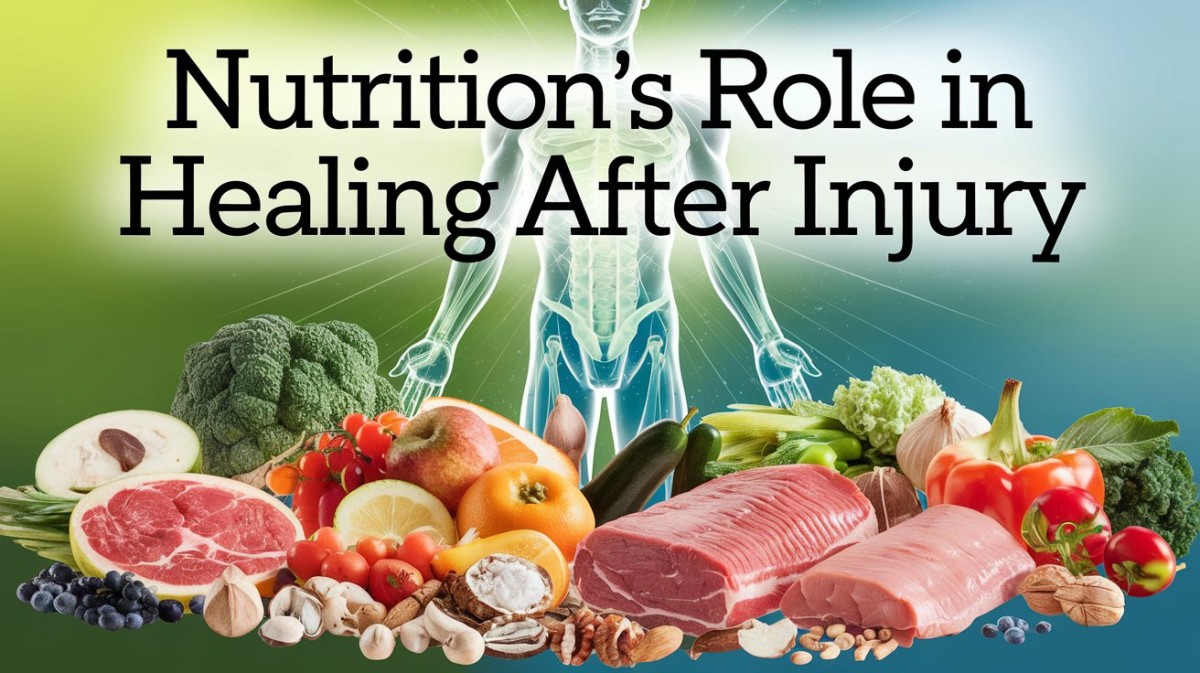It goes without saying that nutrition plays a crucial role in the successful recovery of injured individuals. One needs to understand that the foods that are consumed directly have a role to play in repairing the damaged body tissues, modulating inflammation and recovering in general. Whether the situation is due to an operation, an accident or sports trauma, an adequately recommended diet packed with nutrients will enhance the healing process.
In this blog let us take you through some of the various nutritional guidelines that can help hasten the process of recovery and the types of foods that are essential in the rebuilding of tissues.
The Importance of Nutrition in Recovery

When an injury is in the healing stage, the body needs supplements in terms of nutrients for the reinforcement of tissue formations and restoration of functionality. The nutrients such as proteins, vitamins, and minerals play an important role in enhancing the healing of an injury, strengthening the patient's immune system and fighting inflammation when needed. A balanced diet feeds the body with all the nutrients needed for improvement and recovery and is essential for the body especially when stressed.
Key Nutrients for Healing

1. Protein:
- Protein is essential for rebuilding damaged tissues and muscles. It provides amino acids that are crucial for collagen synthesis, which is necessary for skin and tissue repair.
- Sources: Lean meats (chicken, turkey), fish, eggs, dairy products (yogurt, cheese), legumes (beans, lentils), nuts, and seeds.
2. Vitamin C:
- This vitamin plays a vital role in collagen formation and helps reduce inflammation. It also supports the immune system, making it essential during recovery.
- Sources: Citrus fruits (oranges, lemons), strawberries, kiwi, bell peppers, and dark leafy greens.
3. Zinc:
- Zinc is critical for immune function and plays a significant role in wound healing. It helps maintain skin integrity and structure.
- Sources: Meat (beef, pork), shellfish (oysters), legumes, seeds (pumpkin seeds), nuts (cashews), and whole grains.
4. Omega-3 Fatty Acids:
- These healthy fats have anti-inflammatory properties that can help reduce swelling and promote healing.
-Sources: Fatty fish (salmon, mackerel), walnuts, chia seeds, flaxseeds, and hemp seeds.
5. Vitamin A:
- Vitamin A is essential for skin health and immune function. It helps regulate inflammation and supports the healing process.
-Sources: Carrots, sweet potatoes, spinach, kale, and animal sources like liver.
6. B Vitamins:
- B vitamins (especially B6 and B12) are important for energy metabolism and red blood cell production. They support overall health during recovery.
- Sources: Whole grains, meat (chicken, beef), eggs, dairy products, legumes, and leafy greens.
7. Calcium and Vitamin D:
- Calcium is crucial for bone health and repair after injuries involving bones. Vitamin D enhances calcium absorption.
- Sources: Dairy products (milk, cheese), leafy greens (kale), fortified foods (orange juice), fatty fish (sardines), and sunlight exposure for vitamin D.
Foods to Promote Faster Recovery

Incorporating specific foods into your diet can enhance your body's ability to heal efficiently:
1. Leafy Greens
Leafy greens like spinach and kale are packed with vitamins A and C as well as antioxidants that help reduce inflammation. They provide essential nutrients that support immune function.
2. Berries
Berries such as blueberries, strawberries, and raspberries are rich in antioxidants that protect cells from damage during recovery. They also provide vitamin C critical for collagen production.
3. Nuts and Seeds
Nuts like almonds and walnuts are excellent sources of healthy fats, protein, vitamin E, and zinc—all vital for healing. Seeds such as chia seeds provide omega-3 fatty acids that help reduce inflammation.
4. Fatty Fish
Fatty fish like salmon are rich in omega-3 fatty acids that have anti-inflammatory effects beneficial for healing tissues after injury or surgery.
5. Sweet Potatoes
Sweet potatoes are high in carbohydrates needed for energy during recovery while providing vitamins A and C to support immune function.
6. Legumes
Beans and lentils are excellent sources of protein and fiber that help maintain energy levels while providing essential nutrients like zinc.
7. Whole Grains
Whole grains like quinoa and brown rice provide complex carbohydrates that supply energy needed during recovery while also containing fiber to support digestive health.
Hydration Matters
It is also necessary for the patient to ensure he or she maintains adequate fluid intake when recovering from an injury. Water assists with the movement of nutrients to and from the cells of the body and contributes to flexibility of skin – important when healing from a cut. Ensure you take a lot of fluids throughout the day in between meals; you can also use herbal teas and water with fruits as accents to the menu.
Lifestyle Modifications to Support Recovery

In addition to dietary changes, consider incorporating these lifestyle modifications:
> Frequent Small Meals: Eating smaller meals more frequently can help ensure you’re getting enough calories without feeling overly full.
> Limit Processed Foods: Avoiding processed foods high in sugar or unhealthy fats can help reduce inflammation.
> Adequate Rest: Prioritise sleep as it plays a critical role in recovery by allowing your body to repair itself.
> Physical Activity: Engage in light physical activity as recommended by your healthcare provider to promote circulation without overexerting yourself.
You can read about more essential diet plans for various concerns here.
Conclusion
Protein, vitamins, and minerals, and energy-rich carbohydrates form the most essential nutrients that help speed up the recovery process after an injury. It is possible to make the necessary environment for healing by avoiding junk foods and adhering to a well-balanced diet which includes proteins, vitamins A and C, omega 3 fatty acids, Zinc amongst others and also adequate intake of water.
Any green vegetables, any berries, any form of fatty fish, nuts, legumes, potatoes, whole grains, and beans which forms part of the meal will not only support the recovery process but also the general health. It must be understood that every small change contributes towards an improved result; prioritising nutrition today can lead to getting back to other productive daily activities faster tomorrow.
